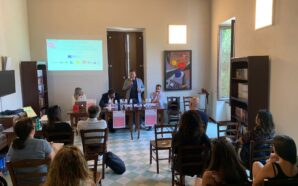Quando parliamo di ECVET per i progetti di mobilità, dobbiamo sempre tener presente che andare all’estero è un’esperienza a parte, oserei dire un’”esperienza di vita”.
Questo concetto è fondamentale per aiutare gli insegnanti a scegliere i task più adatti o, per usare il linguaggio ECVET i risultati di apprendimento, ai loro studenti.
Task che sono obbligatori nel percorso scolastico dei ragazzi.
E’ capitato spesso nelle nostre agenzie di ricevere studenti che sulla carta dovevano svolgere tutti le stesse attività nelle diverse sedi di stage. In realtà, ciò accade solo in rari casi e per un motivo molto semplice: gli studenti non sono tutti uguali, hanno un modo diverso di imparare e anche coloro che frequentano la stessa classe possono avere esigenze differenti.
L’elemento più ovvio riguarda la lingua: come può uno studente svolgere al meglio il proprio stage se ha scarse competenze linguistiche o comunque non tali da permettergli di comunicare anche i minimi dettagli tecnici?
E’ fondamentale, prima della partenza, identificare, impostare e spiegare subito i bisogni formativi a ciascuno studente. Durante la mobilità, tali bisogni possono essere sviluppati e analizzati correttamente al momento del tirocinio, senza mai dimenticare che svolgere un percorso di mobilità all’estero non è come farlo nel proprio paese.
When we introduce ECVET for mobility projects we will have always to keep in mind that going abroad is an experience in itself, a “life experience” I would say.
Bearing that in mind would help teachers to select tasks, or in “ECVET Language” Learning Outcomes, for their students going abroad. Tasks, which are compulsory tasks for the student studies pathway.
It happened frequently in our agencies that we received group of students and all of them, on the paper, they should perform the same activities on the work placements. In rare cases it will happen, just for a simple reason: students are different, they learn differently and although they are on the same year of education they can be on different stages.
The most common fact is about language: How could a student perform well at work if the level of the foreign language spoken in the place of his stay is really low or not enough for technical communication?
It is really important that the training needs of each participant are identified, set and explained to each students before the departure. During mobility they can be developed and investigated properly on the placement never forgetting that doing a mobility abroad is different than doing it in your own country.








